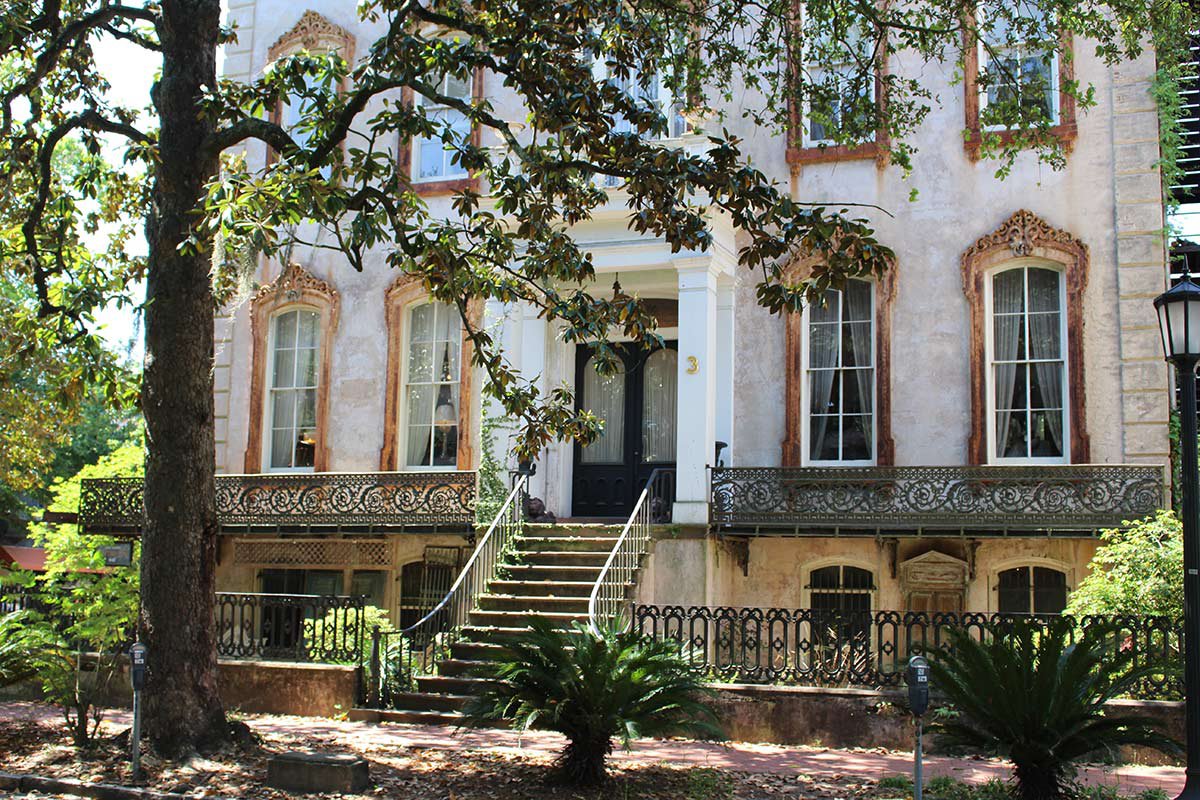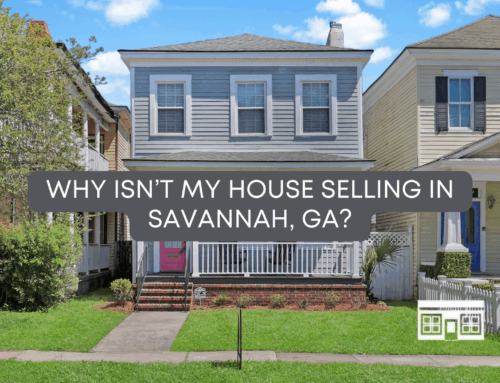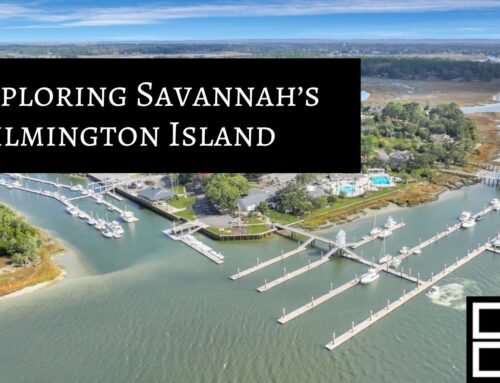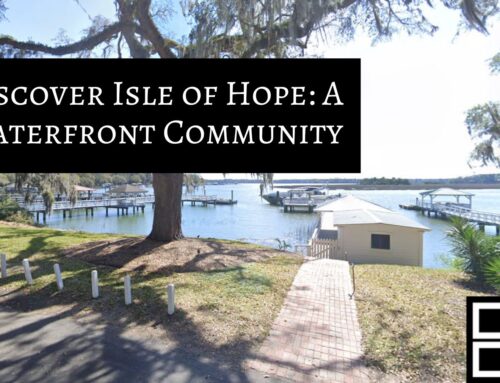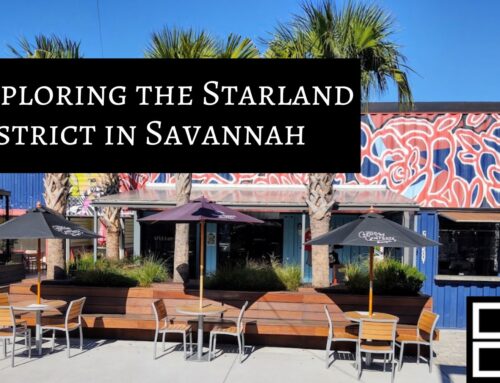Purchasing a Historic Home in Savannah
Henry James, an 18th-century author considered by many to be among the greatest novelists in the English language once described his visits to Savannah in this way….” I recall my fleeting instants in Savannah as the taste of a cup charged to the brim.” And when considering the architectural delight that is Savannah…her cup is indeed “charged to the brim”. The romantic Georgia city enchants with historic architecture that is incredibly diverse with styles that span the 18th and 19th centuries from simple Colonial to the gingerbread accents of the Victorian period.
The Historic District of Savannah, a little over a mile square running southward from the Savannah River, preserves the oldest and many of the most beautiful and interesting places in Savannah. This area, where much of Savannah’s history took place, has a dense population of notable old mansions and historic homes. These homes, in addition to museums, old churches, and synagogues, as well as the cobbled 19th-century riverfront, are evidence of Savannah’s colonial past.
Search All Savannah GA Homes for Sale
Historic Homes: Charm and Character
Historic homes combine the charm and character that, for some, is hard to resist. They seem to have a unique story to tell. A historic home has a legacy, a quirkiness…perhaps even famous past owners, and hidden rooms. So, for those who want a home that expresses individuality, buying a historically significant home is the way to go. Having said that, however, if you are in the market for a historic home but have never owned one, here is some important advice for you to consider:
- There is often confusion over what constitutes a historic home. There are ‘old’ homes, and there are historic homes. Some think historic means a mid-century home…others believe it must be built before the war. One way of quickly checking for a historic home is to look at the National Register of Historic Places or check the Historic District Board.
- Many properties will have an easement. This legal agreement exists to protect the property from development that may affect its historic status. It is a commitment to sell your Savannah home to buyers who will agree to the terms of the easement. An easement will also state what kinds of renovations and alterations can be made to the property, so be sure to check this information before you finalize your plans.
- A homeowner’s association in a historic area helps residents to maintain the look and feel of the neighborhood. This is important when you are interested in a historic home because of its period detail and aspect. While it may be considered restrictive, the HOA helps to maintain historic standards and will be able to provide valuable advice on renovations and alterations.
- You will want to hire a home inspector who is experienced in historic homes. It may also be necessary to rely on the services of a structural engineer. And be sure to get price estimates from contractors regarding all necessary repair work. Make sure the house meets safety and health standards, including passing asbestos and lead paint tests. If your dream house suffers from major structural problems, be prepared to walk away. The long-term headaches will far outweigh your emotional attachment.
Savannah’s Historic Homes
Savannah’s historic homes have their own distinctive accent, much like the native tongues of Savannah itself, welcoming guests as though they are old friends. Historic properties may be a thing of the past, but it is that past that speaks to us of another place in time, of particular events, of old crafts, and even of historical characters. However, even if you do not purchase a historic home, here are some of Savannah’s historic features you can incorporate into any home:
- Picture-Perfect Porches — A porch is the hallmark of any Southern home, especially in Savannah. They make the perfect frame to welcome your guests. No Southern porch is complete without a swing or rocking chair where one can enjoy an ice-cold glass of sweet tea, a cup of coffee, or perhaps some Chatham Artillery Punch, Savannah’s signature alcoholic beverage.
- Decorative Downspouts — When exploring Savannah’s incredible architecture, be sure to look for the ornate downspouts. Commonly in the shape of a fish, the idea behind these spouts stemmed from the Gullah/Geechee belief that evil spirits cannot cross water. The spouts signify that water is present so negative spirits better turn back to where they came from.
- Pineapple Everything — In colonial times, pineapples were a rare delicacy, indicating affluence and wealth. In port cities like Savannah, pineapples would have been a highly sought-after import from arriving Caribbean ships. Legend has it that captains and sailors returning from the sea would display a pineapple on their front stoops to inform neighbors of their safe return.
- Blue Accents – Many Savannah homes also feature the color “haint blue” on their doors and entryway or porch ceilings. The collection of pale shades of blue green was believed to ward off evil spirits, much like the decorative downspouts. Others claim the milk paint people used for their porches contained lye, which worked as an insect repellent.
- Secret Gardens – Savannah, like much of the old South, is no stranger to secret gardens. Many of Savannah’s historic homes boast lush gardens and courtyards where one can enjoy a morning cup of coffee or an evening nightcap surrounded by fragrant flowers and evergreen foliage. A quiet place to get away for a few moments, as the sun is coming up…or as the sun is going down.
There is something about a historic home that speaks to one’s soul. These homes—which in some cases are over 100 years old—are not perfect. To some, they may even be considered flawed, yet others find them charming and full of personality, despite their ‘blemishes’. Fixer Upper’s Joanna Gaines may have said it best, “A historic home is more than just a place to live; it’s a living history that you’re a part of. While the trials of owning a historic home can be daunting at times, the benefits are unrivaled.”



